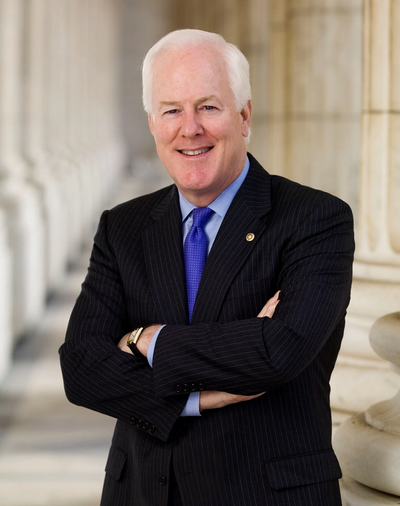U.S. Senator's Biofuel Overhaul Faces Resistance
The plan, which the sources said could be released as draft legislation in coming weeks, represents nearly two years of negotiations with the rival industries to end their ongoing clash over the future of the Renewable Fuel Standard.
The decade-old law requires refiners to cover the costs of mixing increasing volumes of biofuels, like corn-based ethanol, into the nation's fuel supply by acquiring blending credits called RINs that can be purchased or earned.
While the regulation has created a lucrative new market for corn growers and fuel blenders, the many refiners in Cornyn's home state of Texas complain the system has cost them hundreds of millions of dollars, as volumes mandates grow and credit prices trend higher.
The centerpiece of the Cornyn plan includes the creation of a new type of ethanol RIN credit - called a D8 RIN - that the Republican lawmaker believes would lower the price of the existing ethanol blending credits, the sources said.
A D8 RIN would be generated when a gallon of gasoline containing more than 10 percent ethanol is produced. The existing D6 RIN pool would then cover only gasoline with a percentage of ethanol below 10 percent - representing the vast majority of the fuel sold in the country.
By separating the two types of fuel, Cornyn believes generic D6 RIN prices would tumble, saving refiners money. The higher-blend D8 credits would cover a smaller portion of the market but theoretically sell at a premium, preserving the incentive for companies to invest in more ethanol blending infrastructure, the sources said.
Refining company Marathon Petroleum Corp. has been an advocate of the idea. But segments of the refining industry are opposed to sweeping changes because they profit from the status quo. The downstream committee of the American Petroleum Institute (API) recently decided against voting on whether it supported the D8 RIN proposal, the sources said, because of opposition to the plan within the group.
API spokeswoman Sabrina Fang declined to comment on the idea. "It is not fair or appropriate to comment until there is a legislative package released that we can review and comment on," she said. But she added the group generally supported Cornyn's efforts to seek a legislative overhaul of the RFS.
Members of the biofuel industry have their concerns about the D8 credit as well.
"Biofuel and agricultural voices do not support the D8 RIN," Brooke Coleman, head of the Advanced Biofuels Business Council, said.
Cornyn's proposal would impact the market for niche biofuels by dragging down their prices and reducing the attractiveness of investing in the industry's development, Coleman said.
A Cornyn spokesman, Drew Brandewie, said the senator "is working hard to unify all stakeholders." He said the legislation is still being drafted and the major industry trade groups have not seen it. He did not comment on the details of the plan.
Cornyn's plan would also lift a ban on sales of higher-ethanol blends during the hot, summer months - something now restricted due to anti-smog rules.
But plan faces resistance from the corn industry for another reason: It would let the renewable fuel program expire in 2022, the sources said, effectively replacing its biofuels volume quotas with a mandate for higher octane content in gasoline instead.
Higher octane can increase fuel efficiency. It and can be achieved by blending ethanol or other additives into fuel.
Bob Dinneen, head of the Renewable Fuel Association, said that idea endangered the ethanol industry's future.
"Any effort to reform or repeal the RFS that is founded on the premise of demand destruction is a non-starter," he said on the sidelines of an industry event this week in San Antonio.








